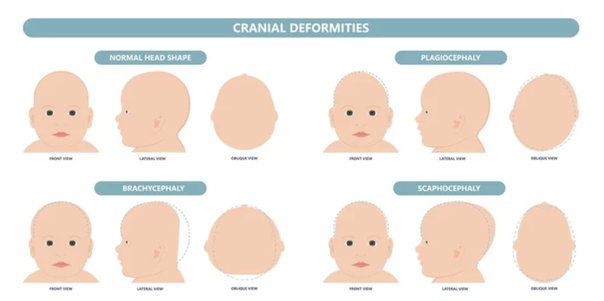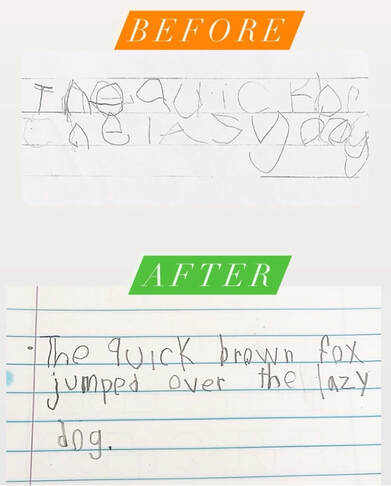All children are evaluated for what treatment areas are applicable to them prior to beginning treatment sessions.
Fine Motor & Handwriting
|
Fine motor skills develop the small (but important) muscles in the hands. Fine motor skills start developing as early as 1-2 months of age and effect coordination, dexterity, and strength for important skills such as self-feeding, handwriting, typing, scissor use, opening and closing containers, typing shoes, opening and closing buttons, snaps, and zippers and so much more!
Check out this before and after handwriting sample from a 5 year old client after just 4 months in OT: |
Sensory
Some children have difficulty taking in and interpreting sensory information and, in turn, reacting to that information. Children who have sensory difficulties sometimes have trouble with focus & attention, reactions, self regulation, social skills, hyperactivity, feeding difficulties, or body awareness.
Seeking or avoidance tendencies can stem from any of the eight senses:
At Cove Child Development we evaluate children to determine which stimuli they are sensitive to, then work with the families to coach and develop strategies in the home, we work with children to use a play-based approach providing a safe environment for children to be exposed to various stimuli they may be sensitive to while teaching the mechanisms to cope with sensory stimuli.
Seeking or avoidance tendencies can stem from any of the eight senses:
- Visual (seeing)
- Auditory (hearing)
- Olfactory (scent)
- Gustatory (taste)
- Tactile (touch)
- Interoception (relays sensations from the organs)
- Vestibular (balance and coordination)
- Proprioception (motor control and posture)
At Cove Child Development we evaluate children to determine which stimuli they are sensitive to, then work with the families to coach and develop strategies in the home, we work with children to use a play-based approach providing a safe environment for children to be exposed to various stimuli they may be sensitive to while teaching the mechanisms to cope with sensory stimuli.
Plagiocephaly & Torticollis

Torticollis is a tightening (shortening) of the muscles on one side of the neck. Plagiocephaly is a flattening of the head. If left untreated Plagiocephaly or Torticollis can cause difficulties in feeding, coordination, posture, delayed gross motor development, and decreased visual motor skills. Fortunately there are many positional and environment changes we can make to help prevent and treat cranial abnormalities. We work with children under the age of 6 months for these conditions.
Self Help Skills
Self help skills (adaptive skills) are age appropriate, real-life skills such as grooming and hygiene, getting dressed, safety awareness, food handling, age appropriate chores, following school rules, managing money, managing time, and social skills. We break down the skills needed in order to complete these tasks and work with our clients on developing these skills. We help motivate children on keeping up with their adaptive skills with charts, picture schedules, and visual step by step directions.
Focus, Attention, Working Memory
Under construction!
Visual Motor Development
Under construction!
Rolling, Crawling, Walking Bootcamp
Under construction!
Speech & Language Development
A pediatric speech pathologist works with children to improve their communication skills, both verbal and non-verbal. Clinicians in pediatric speech pathology work to prevent, evaluate, and treat these communication-related disorders.

